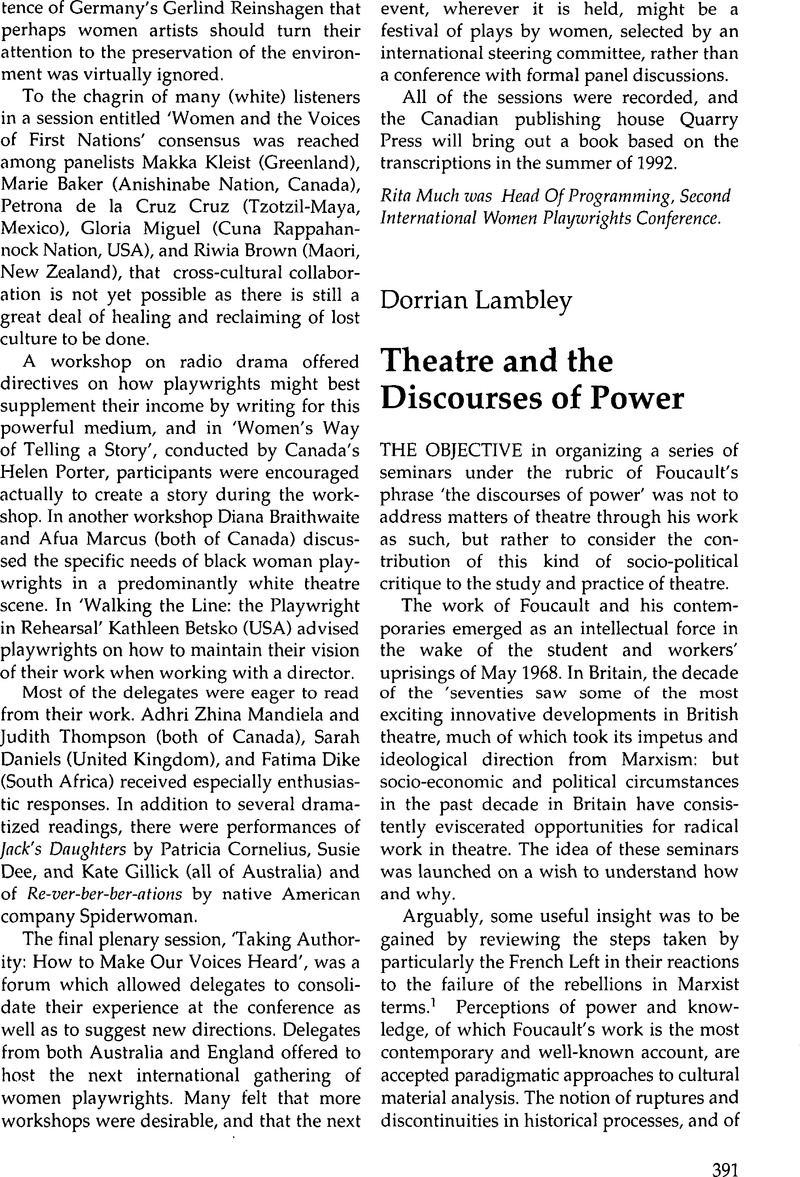No CrossRef data available.
Article contents
Theatre and the Discourses of Power
Published online by Cambridge University Press: 15 January 2009
Abstract

- Type
- NTQ Reports and Announcements
- Information
- Copyright
- Copyright © Cambridge University Press 1991
References
Note
1. My own position, which is suggested to me by Kolakowski's appraisal in Main Currents of Marxism, is that deconstruction, post-structuralism, and post-modernism are not so much renunciations of Marxism, as has been implied by the singularly inappropriate use of the term ‘post-Marxist’, but highly particularized analyses of ambiguities and ambivalences arising from interpretations of Marxism. I am aware that this statement appears to ignore blatant anti-Marxist declarations by some of the French critical theorists, but the context of my position is the long history of Marxism as the key paradigm in the philosophico-political development of contemporary critical theory.




